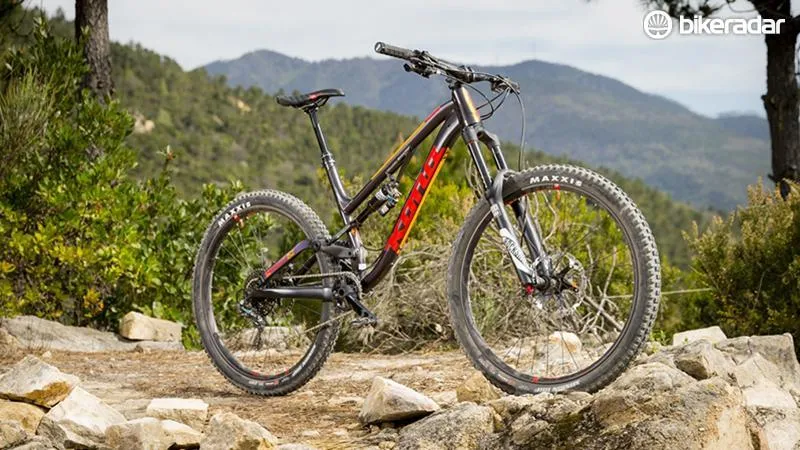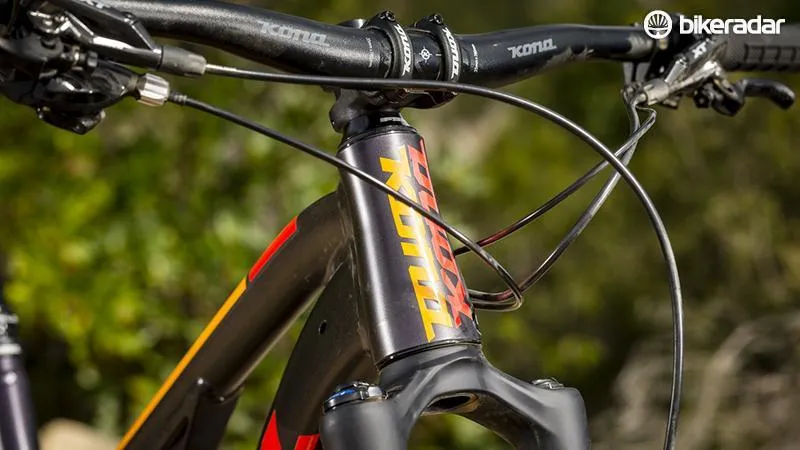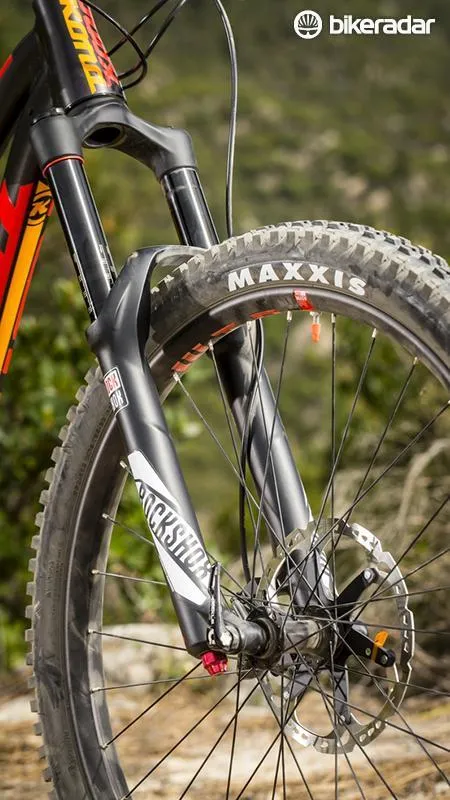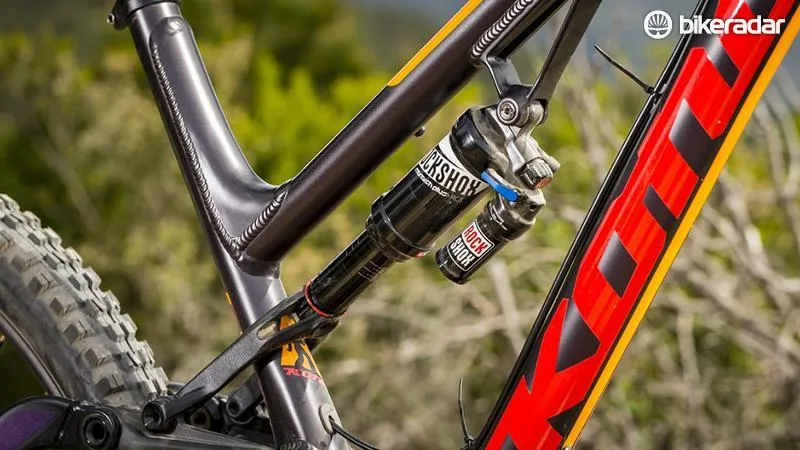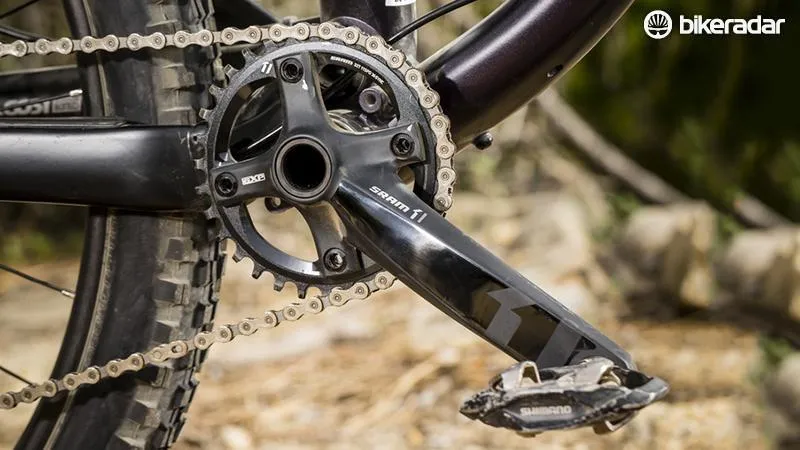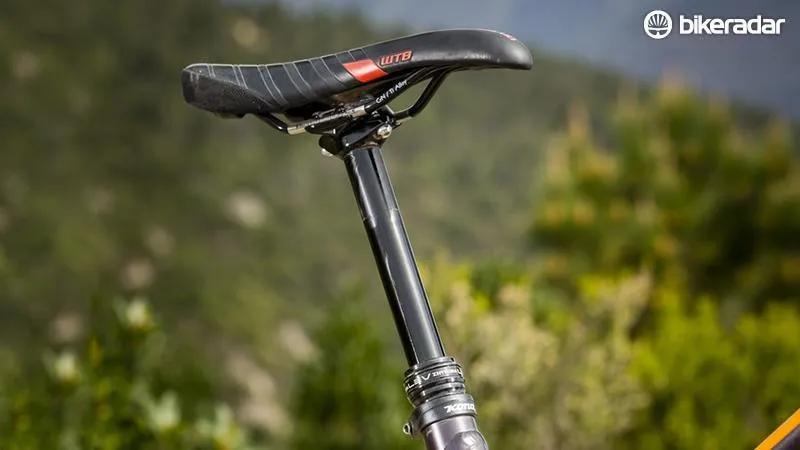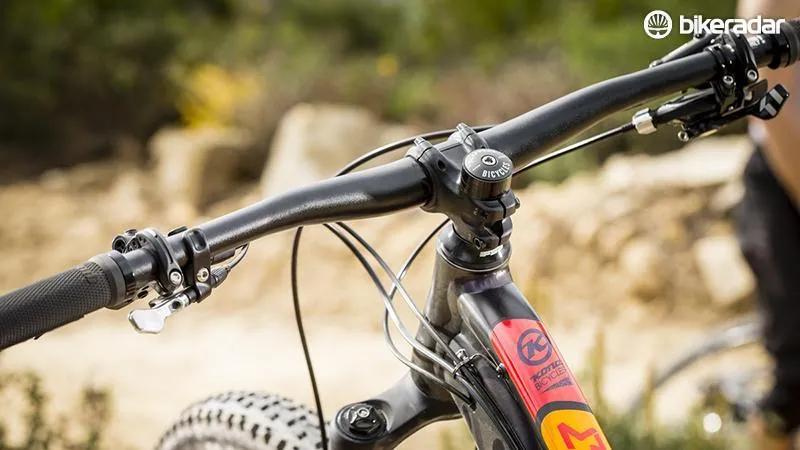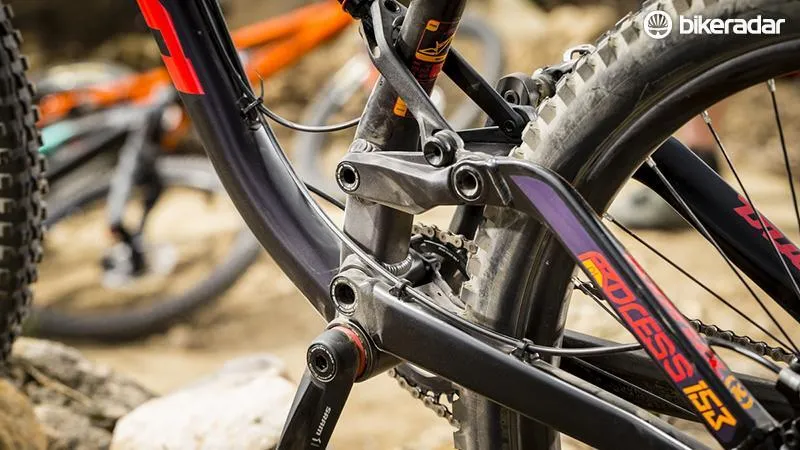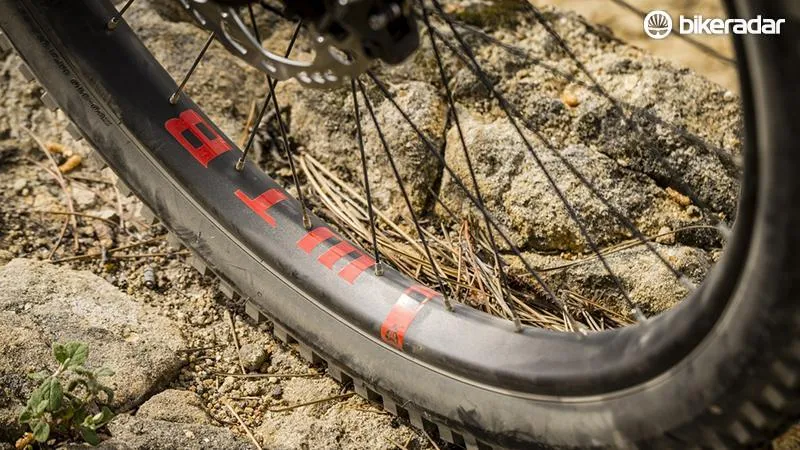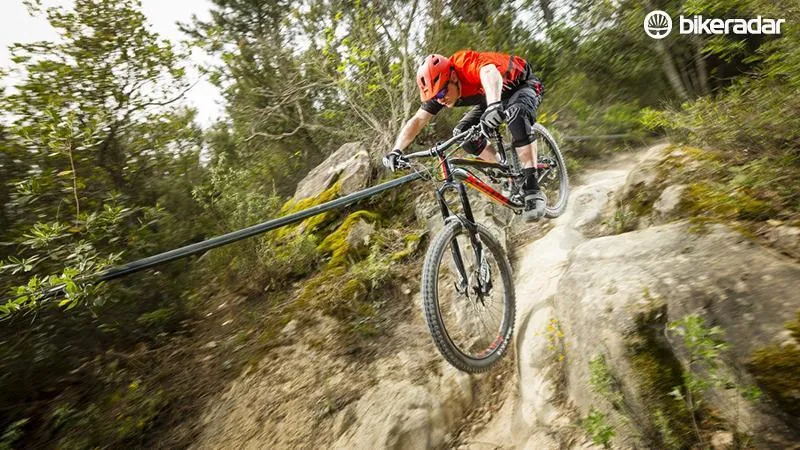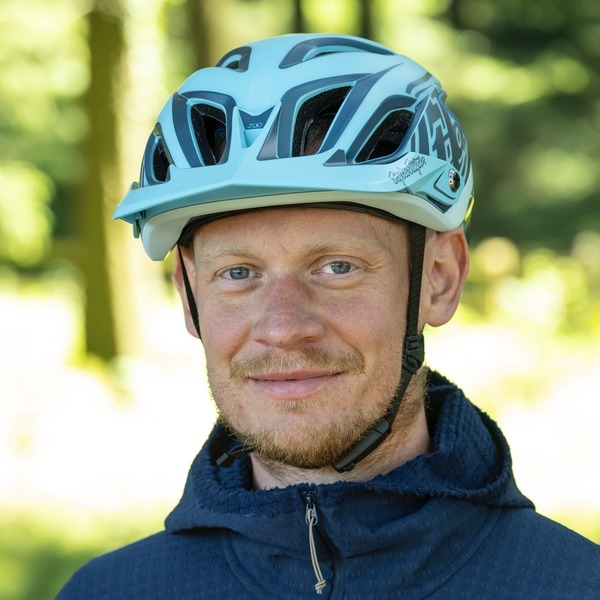There’s little on its spec list to explain why Kona's Process 153 DL costs as much as it does, especially compared with a lot of its competitors in the gravity-orientated market. The frame is alloy (save for a carbon link in the suspension), you ‘only’ get a RockShox Pike, the finishing kit is in-house stuff and there’s little in the way of flash componentry.
Turning to the geometry chart you see a relatively short reach and wheelbase (460mm / 1190mm respectively), and nothing particularly radical elsewhere (66.5-degree head angle, 74-degree seat angle). So why did our testers find the Process so hard to write off, given that on paper it’s somewhat lacking?
Long-proven suspension to take on big country
Kona has proved that you need to look beyond the details to find a bike that, in its main intended application at least, is very competitive. The linkage-driven single pivot suspension system is one the brand has been using for years on its bikes, and the result is a machine that tracks the ground with impeccable ease.
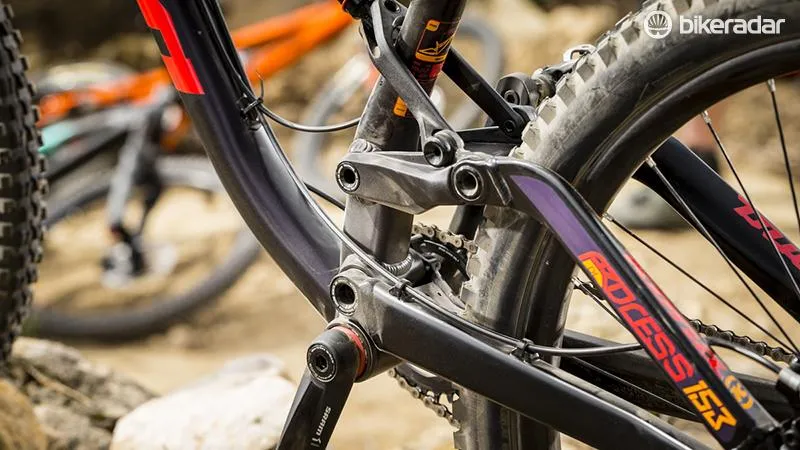
Kona's linkage-driven single pivot suspension is well proven and tracks the ground superbly
That suspension, controlled by a RockShox Monarch Plus RC3, is supple and responsive. It’s soft in its initial stroke, meaning the Process sucks up trail chatter like little else, keeping the rear wheel stuck to the ground, but ramps up towards the end nicely to stave off the big hits that this bike naturally encourages you to take on.
This is definitely a machine happiest on downward pointing trails, along which which it does an extremely good job of projecting you at warp speed.
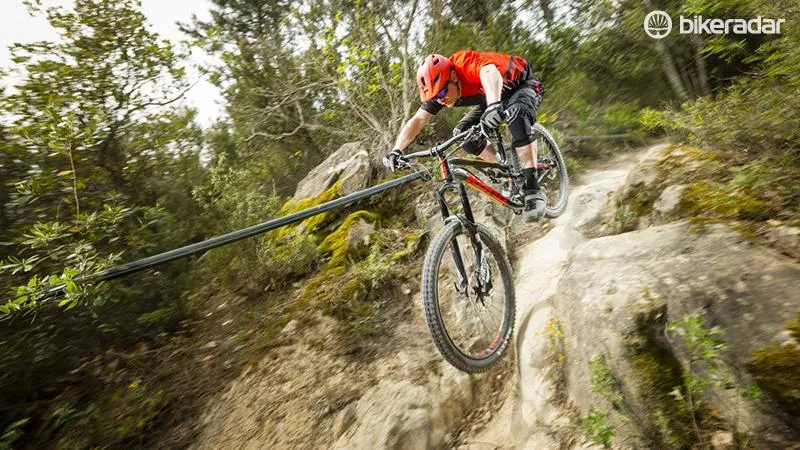
The Process really shines in its natural habitat
There’s no point in having effective suspension if there’s no backup from the tyres, and fortunately Kona has stuck decent triple-compound Maxxis Minion DHF/DHR rubber onto the Process. It's wrapped around super wide WTB ASYM i35 rims, with an internal width of 35mm.
Those hoops give the 2.3in Minions a huge volume, allow low pressures and encourage aggressive use of the shoulder knobs, meaning the Process corners will masses of confidence. Beware though, that such wide rims don’t work well with every tyre on the market, potentially making them too square. When these ones wear out, we’d be tempted to replace like for like, to maintain the decent profile.
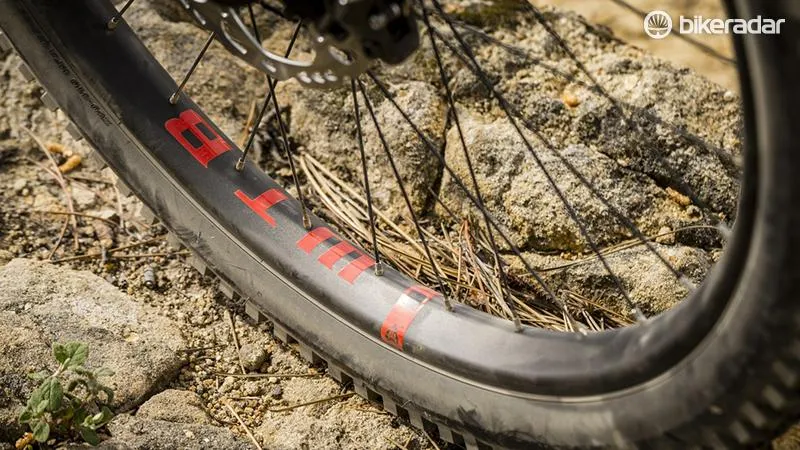
The burly, traction-rich WTB/Maxxis rolling stock is fantastic on the downs
While its defending credentials are near-unimpeachable though, it’s fair to say that taking on rolling terrain aboard the Process is a bit of a slog, with the suspension wallowing into the midstroke, sucking efficiency and slackening the seat angle.
With the shock locked out, it’s also a bit of a mission to winch the Process back up that hill you just sailed down. It’s not the lightest bike, and the heavy, grippy wheelset definitely plays against you. The lack of length in the top tube also makes it relatively cramped, and should your climb be off road, that soft and supple suspension comes back to bite you in the ass.
It's good though that the Monarch is a simple shock to set up, so shouldn’t take too long to get dialled for your ride. Three damping positions mean you can add a load of low-speed compression to make it a touch friendlier on tarmac pedalling sections.
Just-good-enough kit, but great fun overall
Elsewhere the Process's kit is effective, if unremarkable. SRAM XO1 gears give a decent range and positive shifting between the 10-42t sprockets, meaning you’re rarely wondering whether the shift has completed, but the cranks are budget SRAM X1 1200s, which add to the high overall weight.
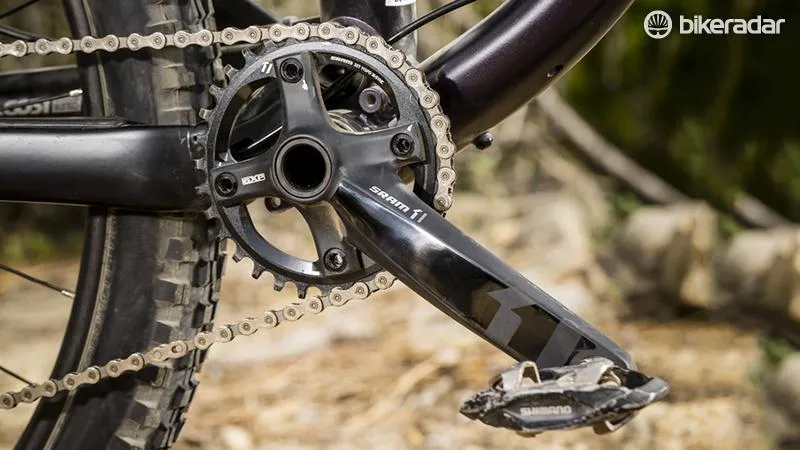
Weighty cost-saving SRAM cranks do the Process few favours
The Shimano XT brakes on our test mule suffered with the inconsistent bite point issue we’ve had recently with XT and XTR items - undermining their great reputation – though the 203mm front and 180mm rear rotors are just what’s needed on a bike like this.
The benchmark-setting Pike RCT3 is far from being a bad fork. But compared with the Lyriks, Fox 36es and BOS units found on other bikes in this price and ride bracket, it can't help but feel a little undergunned.
The KS LEV Integra dropper post, meanwhile, was sticky on return and just isn't as refined as the Reverbs adorning some of the competition. More positively, the cockpit may be Kona-branded, but you get a nice and short stem and wide bar combo, which felt good in use, and the WTB Volt saddle is a very decent perch.
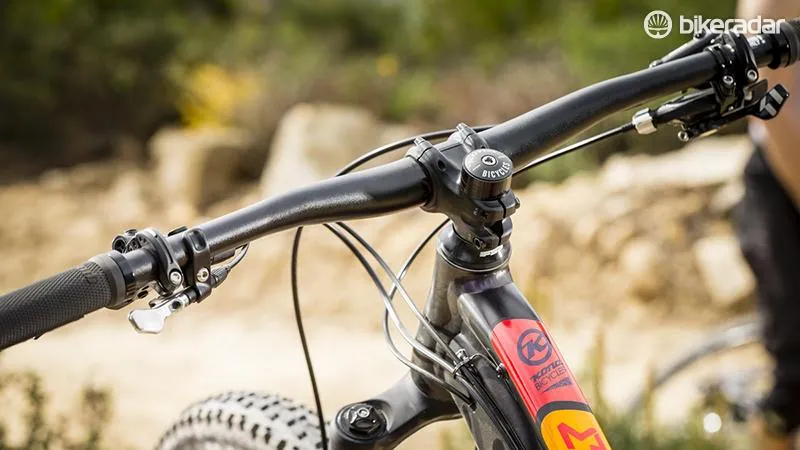
The pleasing short stem / wide bar cockpit is formed from solid own-brand components
Coming to the end of this review, it sounds like we’ve slated the Process, yet taken as a complete package this is an incredibly confidence-inspiring ride. While some bikes can felt dead or skittery, the Process just felt planted regardless of what we threw it down.
The geometry may be far from long, especially by modern standards, but the bike is flickable enough to have a lot of fun with, and the suspension supple enough to give miles of control in the rough.
